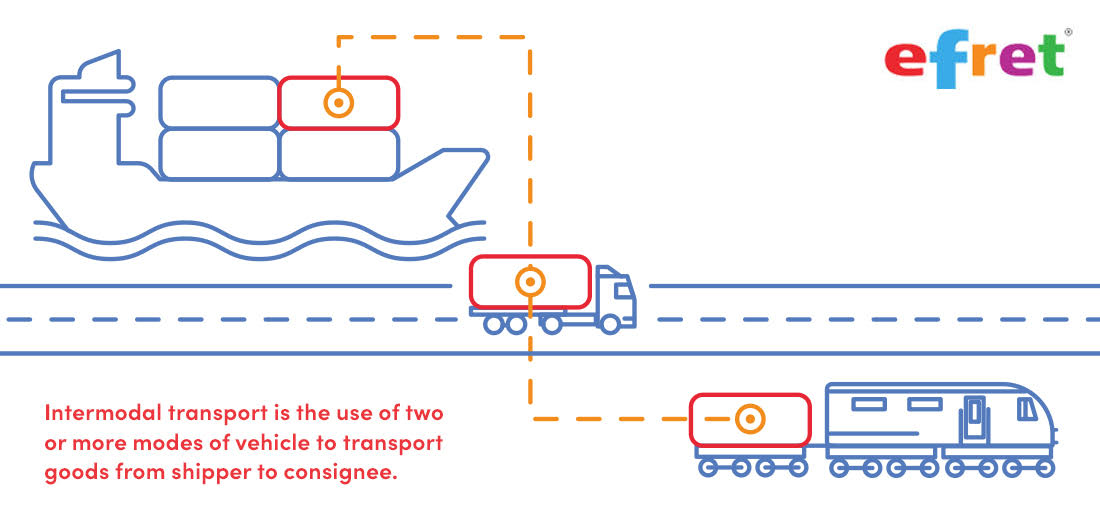What is Intermodal Transport?
Intermodal transport is the use of two or more modes of vehicle to transport goods from shipper to consignee. Special standardised containers are used for intermodal transport of cargo via road freight on trucks, trains, and ships or ferries, without any direct handling of the freight goods when changing modes.
Lead logistics providers can utilise this transportation method to:
- reduce cargo handling
- improve security
- improve eco-friendliness by reducing CO2 emissions
- reduce the possibility of damage and/or loss
- increase the opportunity for freight to be transported to the consignee faster

Benefits of Intermodal Transport:
- Reduced Emissions: Intermodal transport reduces carbon emissions by optimising routes and modes, making it a powerful ally in the fight against climate change.
- Faster Delivery: By utilising the strengths of each mode, we deliver goods faster, boosting your supply chain's efficiency.
- Cost Savings: Efficiency translates to cost savings, benefiting both businesses and the environment. It's a win-win!
- Resilience: Intermodal transport offers a robust, flexible system that's less susceptible to disruptions, ensuring your goods reach their destination on time.
- Sustainability: With reduced road congestion and emissions, we're paving the way to a greener, cleaner future for generations to come.
For more information about our intermodal solutions, get in touch with our team.
+ 44 (0) 1202 132 769
sales@efret.netsales@efret.net







